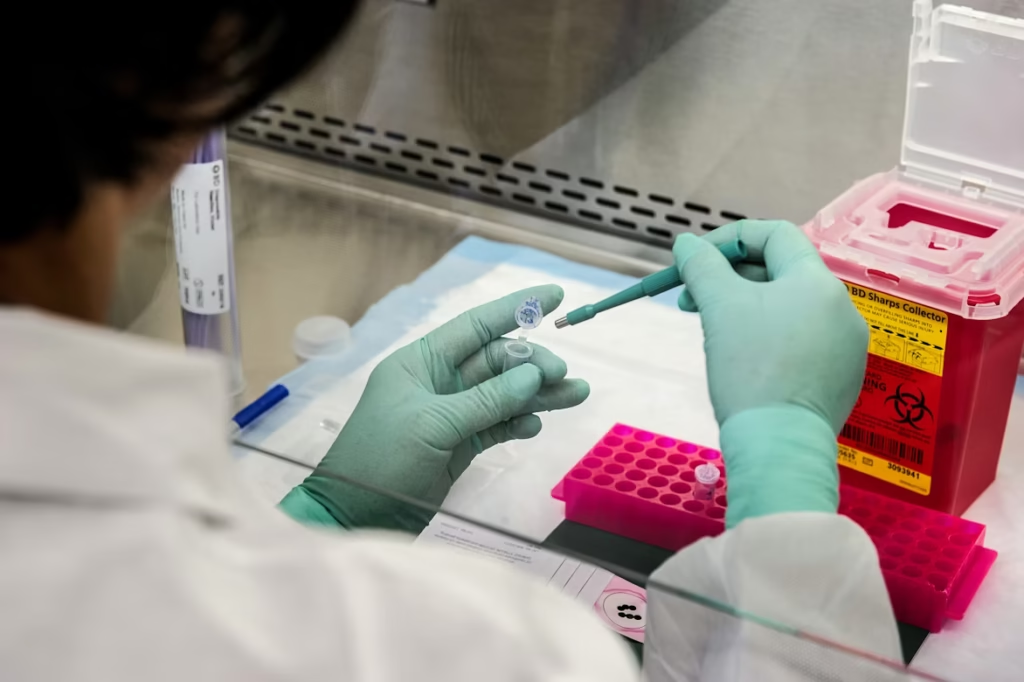In a major breakthrough for cancer research, scientists have announced a revolutionary new cancer treatment, OncoVax, that could significantly improve survival rates and reduce side effects for cancer patients. The innovative immunotherapy, which has shown remarkable results in early-stage clinical trials, offers new hope for those battling various forms of cancer, potentially changing the landscape of cancer care.
OncoVax works by harnessing the body’s immune system to recognize and attack cancer cells more effectively. Unlike traditional treatments such as chemotherapy and radiation, which often cause debilitating side effects, OncoVax trains the immune system to target tumors with precision, sparing healthy tissues. This novel approach marks a shift away from the toxic side effects associated with conventional treatments, offering patients a less invasive and more effective option.
“OncoVax represents a significant leap forward in cancer treatment,” said Dr. Katherine Lewis, the lead researcher behind the breakthrough. “By reprogramming the immune system to focus specifically on cancer cells, we can not only improve treatment outcomes but also reduce the harmful side effects that often come with conventional therapies.”
In early trials, OncoVax demonstrated significant tumor shrinkage in patients with a variety of cancers, including breast, lung, and colorectal cancer. Some patients even experienced complete remission of tumors. Researchers are cautiously optimistic that these results could pave the way for OncoVax to become a new standard of care for cancer patients, particularly those diagnosed in the early stages of the disease.
The treatment works by identifying specific proteins found on the surface of cancer cells and creating a vaccine-like substance that trains the immune system to recognize and destroy those cells. This process also enables the body to “remember” the cancer cells, providing long-term protection against future recurrence. Early findings suggest that patients treated with OncoVax experience fewer relapses and a lower incidence of metastasis compared to those receiving traditional treatments.
For cancer patients and their families, the announcement of this breakthrough has been nothing short of transformative. “After watching my mother struggle through chemotherapy, I was losing hope,” said Emily Roberts, whose mother participated in the clinical trial. “Seeing the positive results in her case has been miraculous. This treatment could change everything for people who’ve been given little to no options.”
While the early results of OncoVax are promising, the treatment is still in the early stages of clinical testing, and more research is needed to fully understand its long-term effects and effectiveness across a wider range of cancers. The next phase of trials will include larger, more diverse patient groups and will focus on refining the treatment and assessing its safety profile.
Experts are also keeping a close eye on the cost and accessibility of the treatment. While the technology behind OncoVax is groundbreaking, there are concerns that the high cost of development could limit access for some patients, especially those without comprehensive health insurance. Addressing these concerns will be critical in ensuring that the benefits of OncoVax are accessible to as many people as possible.
In the coming months, researchers plan to expand the clinical trials to include more diverse populations, including patients with advanced-stage cancers. If the results continue to be positive, OncoVax could be approved for wider use in as little as two to three years, potentially offering a new, less invasive treatment option for cancer patients worldwide.
As 2025 progresses, this promising breakthrough in cancer therapy has sparked renewed optimism in the medical community. OncoVax represents not just a potential treatment but a new direction in cancer care, where the immune system plays an active role in fighting cancer. If the ongoing research continues to yield positive results, OncoVax could soon become a game-changer in the quest for more effective, less harmful therapies for cancer patients across the globe.


